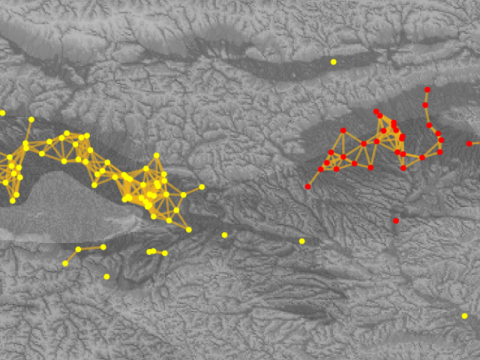The Computational Humanities group is doing research at the interface between mathematics and applications coming from humanities and social sciences. Our main goal is to generate new theoretical knowledge and develop formal mathematical methods for modeling, simulation and computational analysis of real-world systems coming from the area of humanities and social science.
Through interdisciplinary collaborations, we study different aspects of human society and complex processes of spatio-temporal change within social systems. Our main research interests are:
- multi-scale data-driven models, such as stochastic agent-based models, metapopulation models and ODE-based models with homogeneous mixing;
- temporal interaction networks for studying stochastic social systems and dynamics on/of these systems;
- spatio-temporal evolution of dynamical processes for understanding processes of change, such as opinion dynamics and epidemic spreading;
- statistical inference from (a) rich and complex data sets generated in modern social systems; and (b) sparse, uncertain and missing data often coming from historical social systems, e.g. innovation spreading in ancient cultures;
- ...
Data publications
Data publications from the Computational Humanities group can be found on our Zenodo community.
Group photo
The Computational Humanities research group in front of the ZIB building in June 2024.

